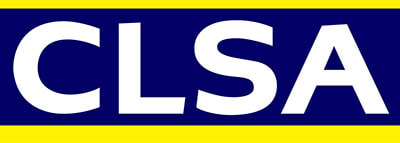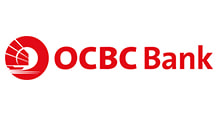|
In my years of installing NLP (Neuro Linguistic Programming) tools in the workplace, I have come across a large percentage of team managers possessing inadequate strategies to unleash the best performance from their teams. Often team members are expected to perform and meet KPI’s that have no or little support as to “how to” make goals happen. For today’s context, it isn’t sufficient to just be a headcount with a title of Team Leader / Manager, if your intention is to produce exceptional performance. The bigger job is to understand behaviour, elevating teams to bigger outcomes. For today’s context, it isn’t sufficient to just be a headcount with a title of Team Leader / Manager, if your intention is to produce exceptional performance. The bigger job is to understand behaviour, elevating teams to bigger outcomes.
Understanding self is fundamental to this success. It all starts with you! When a manager is open to learning and changing, this becomes obvious to the team. This attitude sends under-the-radar messages of taking feedback and doing it better the next time. An openness to change transcends to the team which then communicates a learning mindset, that encourages a new regime. Picking up new strategies to improve teamwork then becomes the biggest component of individual and team KPI’s. Believe it or not, this re-focus in direction is the single most important thing to have circulating on the radar that holds every team member in good stead. Why you may ask? As business is behaviour and behaviour is business, it is imperative that a manager understands what sits at the core of a person’s desire to blitz it! Re-orienting the internal radar also begins sending signals to the unconscious mind which is the powerhouse that drives behaviour. NLP a high performance toolbox filled with context, process and structure gives managers touch points and tools for team effectiveness (without having to attain a degree in psychology). So how does NLP apply to the routines of a team’s rhythm with the focus being to get “in the zone”? An NLP course would teach managers first of all, where the leverage points for making a change in behaviour lie. Once a manager understands this, the next step is to learn how to make that change. Where the word “change” is scary to most people who love the comfort of routine, an NLP course does not require you to get into content (private conversations of who said what). In fact it teaches managers to solve problems and improve teamwork effectiveness fast and easily, by working with the context of a person’s experience. For greater understanding let me explain an example of a workplace scenario. If two team members are in conflict and do not like each other but have to work with each other, there would be a considerable amount of constant grating against each other during the workday. He said this and she did that. Allegations, accusations, mistrust that is continuous. A manager who is trained in some NLP for work processes, would know how to dissociate the team members from their feelings about the other team mate. This gives each of them the opportunity to step out of their point of view and understand the bigger picture that both of them are in. In other words to take the viewpoint of an observer or spectator. Most people only see situations from their point of view. Taken to the extreme this takes one to a narcissistic personality. Once the manager is able to step them out of the situation, most times people find reprieve in seeing the same situation from a different angle. Taking the team member even further into teamwork effectiveness, the manager could then step them into the other person’s point of view. What does it feel like to be in the other person’s shoes? A fundamental point to remember about working with NLP tools is that all processes are taken through the five senses. In other words how a person feel, what they hear and see? This is working though the unconscious mind. Most often people work though the logical, analytical, judgmental conscious mind which is where the problem is. The real answers lie in a person’s unconscious mind and if managers are trained in strategies to improve teamwork, they are able to access the deeper part of how to motivate a person. To have your team pumped up to get out of bed every morning, feeling energized through the day is a totally wonderful feeling. This is how high performing teams operate – out of their purposeful self where no reminders are needed and team members operate with a sense of deep accountability and passion. If your team suffers from poor communication, a lack of trust and low engagement, these are signs to learn NLP either through attending a course or hiring an NLP coach. This is an imperative course of action before these factors erode results even further. From experience of working in corporates for the last 25 plus years, I know that teams appreciate managers who are well equipped with the right conditions to help them develop and grow. And why not? So these are some strategies to improve teamwork in the workplace: · Work on yourself first – clear past negativity and understand what your motivation is in being a manager · An inspirational manager builds an inspirational team – be that person by walking the talk and sticking by what you say · Open communication as much as possible – create a transparent team so members feel the trust and disband with secretive behaviours · Establish an infrastructure with an open door policy – this encourages feedback from your team and eradicates hierarchy · Ask the team for solutions rather than provide solutions – this builds trust and gives them an opportunity to contribute · Reward behaviour that you want – acknowledge when a piece of work is well done and punish behaviour that you don’t want The list goes on – there are many more strategies to improve teamwork in the workplace. In today’s workplace managers need to have the skills to improve teamwork effectiveness - it is a necessity not a nice-to-have anymore. Younger generations are joining organisations that are led by inspiring leaders where collaboration and team work is valued. It is time to step up to the game if you have not already done so…….
0 Comments
Your comment will be posted after it is approved.
Leave a Reply. |
SYLVIA FERNANDES
Sylvia is a qualified Neuro Linguistic Programming (NLP) Master Trainer. She started her business in Sydney and is now based in Singapore. Archives
December 2024
Categories |

 RSS Feed
RSS Feed









